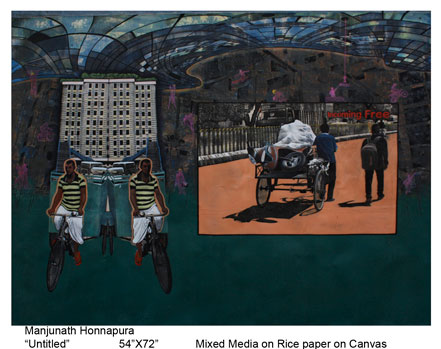Exploring the Artistic Vision of Peter Campus: A Journey Through Video Art and Installation
Guide or Summary:Introduction to Peter CampusThe Evolution of Peter Campus's WorkVideo Art and Its ImpactInstallation Art: An Immersive ExperienceThematic E……
Guide or Summary:
- Introduction to Peter Campus
- The Evolution of Peter Campus's Work
- Video Art and Its Impact
- Installation Art: An Immersive Experience
- Thematic Exploration in Campus's Work
- Legacy and Influence
- Conclusion: The Lasting Impact of Peter Campus
Introduction to Peter Campus
Peter Campus is a pioneering figure in the realm of video art and installation, renowned for his innovative approach to visual storytelling. Born in 1937, Campus has made significant contributions to contemporary art, particularly through his exploration of the relationship between video technology and the human experience. His works often challenge viewers to reconsider their perceptions of reality and identity, making him a vital figure in art history.
The Evolution of Peter Campus's Work
Campus's artistic journey began in the 1970s when he started experimenting with video as a medium. His early works were characterized by a minimalist aesthetic, focusing on the interplay between the viewer and the screen. One of his notable pieces, "Three Transitions," exemplifies his ability to manipulate video to create a dynamic experience that blurs the lines between reality and illusion. As technology evolved, so did Campus's work, incorporating new techniques and concepts that pushed the boundaries of traditional art forms.

Video Art and Its Impact
Peter Campus's influence on video art cannot be overstated. He was one of the first artists to recognize the potential of video as a legitimate artistic medium, rather than just a tool for documentation. His works often feature introspective themes, inviting viewers to engage with their own perceptions and emotions. This self-reflective quality is a hallmark of Campus's style, encouraging audiences to explore their own identities within the context of the digital age.
Installation Art: An Immersive Experience
In addition to his video work, Campus has also made significant strides in installation art. His installations often combine video projections with physical environments, creating immersive experiences that envelop the viewer. One such installation, "The Reflecting Pool," utilizes mirrors and projections to create a mesmerizing interplay of light and shadow, inviting participants to navigate through a space that challenges their understanding of depth and perspective. This innovative approach has garnered acclaim and solidified Campus's reputation as a leading figure in contemporary installation art.
Thematic Exploration in Campus's Work
Throughout his career, Peter Campus has explored a variety of themes, including identity, perception, and the passage of time. His works often reflect a deep philosophical inquiry into the nature of existence and the role of technology in shaping our understanding of reality. For instance, his piece "Video Reflection" invites viewers to confront their own image and consider the implications of self-representation in an increasingly digital world. This thematic depth adds layers of meaning to his work, inviting ongoing dialogue and interpretation.
Legacy and Influence
Peter Campus's contributions to the art world extend beyond his individual works. He has inspired a generation of artists to explore the potential of video and installation as mediums for expression. His innovative techniques and conceptual frameworks have paved the way for contemporary artists to experiment with technology in their own practices. As a professor and mentor, Campus has also played a crucial role in shaping the next generation of artists, instilling in them the importance of pushing boundaries and questioning the status quo.

Conclusion: The Lasting Impact of Peter Campus
In conclusion, Peter Campus stands as a monumental figure in the landscape of contemporary art. His pioneering work in video art and installation has not only transformed the way we perceive these mediums but has also opened up new avenues for artistic exploration. As we continue to navigate a rapidly evolving digital world, the themes and questions raised in Campus's work remain profoundly relevant. His legacy as an artist, educator, and innovator will undoubtedly continue to inspire future generations to explore the intersections of art, technology, and human experience.
